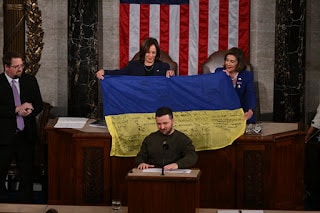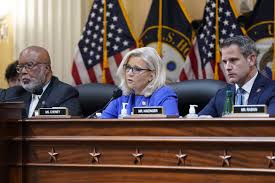Thank God that President Joe Biden is old! Last night, President Biden gave an Oval Office address about the two contemporary crises in our world – the war between Israel and Hamas and the war between Ukraine and Russia. In the process, he demonstrated once again the value of years of political experience, particularly in international relations, and his own personal gift and quality of empathy. It was perhaps the best speech of his presidency. And he showed why he – rather than someone else – is in the White House. He strode the stage as a true statesman, referencing « petty factions and angry politics » while avoiding overly partisan comments on current GOP-caused chaos.
The President called this crisis moment « an inflection point, » situating the current conflicts in the larger international picture and longer political timeline. In this address – as indeed in his overall response to this moment – Biden has faced a two-fold challenge. The first challenge is to support Israel and Ukraine effectively while also successfully keeping both those conflicts within manageable limits. The second challenge – perhaps an even more difficult challenge – has been to muster sufficient and widespread American support for this policy and, in particular, selling his proposed aid package to a Congress, which is increasingly dysfunctional and unreliable, a Congress where the House cannot elect a Speaker and the Senate permits an obstructionist football coach to continue holding up military appointments!
The President was at his best laying out the issues and the corresponding need for American leadership in the world – and for getting our own act together at home both in international policy terms but also in terms of anti-semitism, Islamophobia, and domestic American polarization in general.
Given the immediate crisis on the Middle East and how it has univocally dominated the news now for two weeks, it was interesting that the President devoted so much of his speech to the ongoing war in Ukraine and that the largest share of the proposed aid is for Ukraine. While probably intended to derail the possible normalization between Israel and Saudi Arabia, the Hamas attack has also seemingly sidelined the current conflict in Ukraine, which remains a critical font-line in the longstanding conflict not just between democracy and tyranny but also between civilization and barbarism. This may well prove to be the « inflection point » that breaks through the perennial impasse in the Middle East. Crisis can create opportunity. History, however, suggests otherwise when it comes to this particularly intractable problem. Ukraine, meanwhile, remains the real « inflection point » that hopefully will really make a difference in the world.





